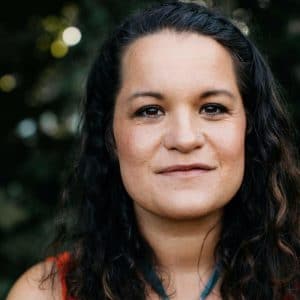Adult Parenting
If 70% of conflict is unresolvable, our goal is no longer resolution, but rather an experience.
I am sitting in my favorite Seattle coffee shop, one where there are only three types of coffee offered because the snobby-ness is ‘mucho’ high here in the Seattle coffee world. I have decided that I will need to revisit my favorite alternative milk due to feeling bloated all the time. So I am on my third 8oz, decaf latte…the winner being oat milk over soy and almond. I am typing away frivolously when a father and son sit down next to me and their conversation takes over my workspace. The father is obviously broaching a hard conversation and I can’t help but continue to listen after I hear the nature of their conversation.
Dad: “Do you think mom and I shouldn’t come out anymore to visit you?”
Son: “I think it is just easier for our family to visit you in L.A. because it is stressful to have you visit us.”
Dad: “I think we could just stay somewhere else when we come to visit and it will be better, I mean, you didn’t clean your house at all, so obviously you weren’t able to prepare for us. Don’t you still have that house cleaner? Maybe they can come the week before we visit?”
Son: “Dad, it is easier if I just come visit you and we can avoid conflict.”
Dad: “Or we could talk through it and get past these conflicts so that we can visit more often.”
Son: “The conflict hasn’t changed in 17 years, so we should just do what is easiest.”
Dad: “We also wanted to talk about the weight you have been gaining. Your mom and I are worried and I just want to tell you what I did to lose weight.”
At this point, as a therapist who has done more family therapy sessions than I care to talk about, I have stopped working and I am actively listening to this father as he broaches these hard conversations with his disinterested son.
Being the parent of young children, I have a healthy fear for what the future holds when we have adult kids. Who will they marry? How will we get along with their new family dynamics? I just hold my breath listening to this father talking with his son. It is actually impressive to have a father so forthright and willing to be in awkward conversations even if they lean toward helicopter parenting. The father and son transition through the hard topics and laugh as they move into a more enjoyable conversation about societal popstars. I pack up my things and feel thankful for this interruption. It is really sweet to see that parents still care so much for their kids. They are willing to take on the hard topics even if they don’t tactfully know-how.
There are a few ways I have seen parents and adult children have good, hard, constructive conversations:
1. Schedule a specific time where both parties aren’t going to be interrupted.
2. Begin the conversation slowly with each person taking a turn to say what they appreciate about the other.
3. Allow the person with the longest holding complaint or concern to go first. When the person sharing the complaint or concern is finished, have the other reflect back on what they heard and ask if they feel heard.
4. After the first to share feels heard, allow the other to take a similar turn.
5. End the time by looking into each other’s eyes and thanking them for sharing in this hard conversation with them.
If 70% of conflict is unresolvable, our goal is no longer resolution, but rather an experience. The goal of the conversation is to experience intimacy and respect with each other rather than agreement. We must stretch ourselves to hear the other and get to know them in what they are sharing rather than convincing them. The parent-child relationship must grow and mature just like any other relationship if it wants to stay healthy.
More information at christiancc.org

Dr. Christy Bauman, Ph.D., MDFT, & LMHC is committed to helping women come into their true voice. She has a podcast entitled Womaneering and she offers story-work consulting and marriage intensives with her husband Andrew Bauman through their organization, Christian Counseling Center for Sexual Health and Trauma. She is the author and producer of her works: Theology of the Womb, Womaneering Perpetual Calendar, A Brave Lament, and the award-winning Documentary: A Brave Lament. She is a psychotherapist, supervisor, part-time professor who focuses on the female body, sexuality, and theology. Christy’s work can be found at christybauman.com


